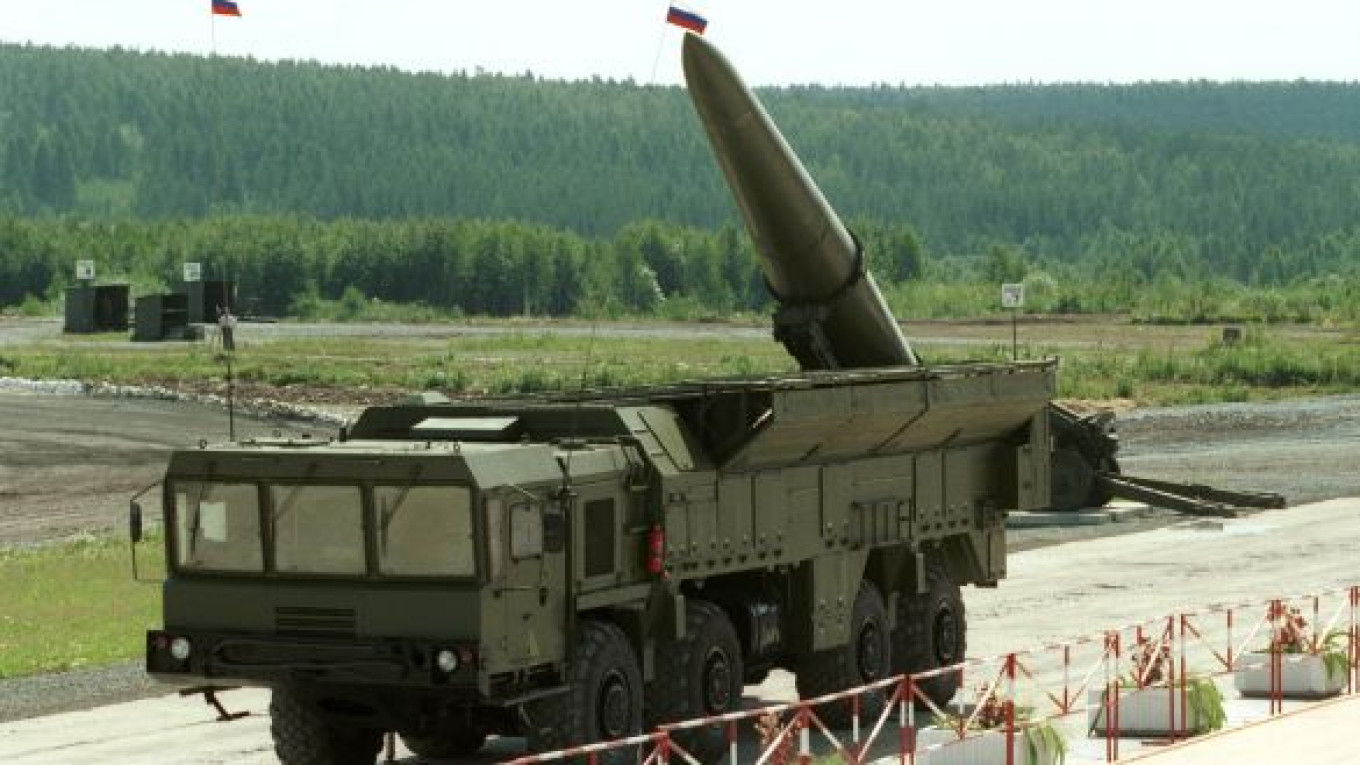Correction appended
Speaking Thursday at an international conference on missile defense in Moscow, Defense Minister Anatoly Serdyukov cast doubt on the future of missile defense negotiations, saying they were leading nowhere.
"We have not been able to find mutually-acceptable solutions at this point and the situation is practically at a dead end," Serdyukov said, cautioning that Russia might be forced to deploy strategic missiles positioned to destroy elements of a Europe-based missile shield.
Russia has been outspoken in its resistance to NATO-backed U.S. plans to deploy a system of missiles to protect its European allies from potential attacks from states like Iran, saying it could neutralize Russian military capabilities.
"We're not talking about introducing any restrictions on the specifications of the missile shield. Only one condition — the zone of possible interception for current and future missile defense weapon systems should not cross the border of Russia," General Staff head Nikolai Makarov said at the conference, Interfax reported.
Makarov renewed threats about placing short-range Iskander missiles in south and northwest locations in Russia to check missile systems in Europe and called such systems "destabilizing."
"A thorough analysis by the defense ministry's research organizations showed that once the third and fourth stages are deployed, the capability to intercept Russian inter-continental ballistic missiles will be real," Makarov said.
NATO officials countered by saying that the Europe-based missile system would be too weak could not possibly intercept Russian missiles.
"We have no desire to undermine global strategic stability. On the contrary, the missile defense system will be able to intercept only a small number of relatively weak ballistic missiles. They do not have the capacity to neutralize Russia's deterrent force," NATO Deputy Secretary General Alexander Vershbow said, RIA-Novosti reported.
Russia has not said whether it will attend next month's NATO summit in Chicago, at which the formal deployment of the missile system is set to be announced. President-elect Vladimir Putin has said he will not attend the event.
An eight-member Washington delegation is in Moscow this week to meet with Russian officials on missile defense. The delegation will also visit sites for the A-135 missile defense system that protects the Russian capital.
In March, U.S. President Barack Obama was caught in a hot microphone gaffe telling Medvedev he could negotiate concessions on the missile system after the U.S. presidential election in November.
Correction: An earlier version of this article incorrectly stated that Russia had said it will not attend a NATO summit in Chicago next month; in fact, Russia has not said whether it will send representatives to the event.
A Message from The Moscow Times:
Dear readers,
We are facing unprecedented challenges. Russia's Prosecutor General's Office has designated The Moscow Times as an "undesirable" organization, criminalizing our work and putting our staff at risk of prosecution. This follows our earlier unjust labeling as a "foreign agent."
These actions are direct attempts to silence independent journalism in Russia. The authorities claim our work "discredits the decisions of the Russian leadership." We see things differently: we strive to provide accurate, unbiased reporting on Russia.
We, the journalists of The Moscow Times, refuse to be silenced. But to continue our work, we need your help.
Your support, no matter how small, makes a world of difference. If you can, please support us monthly starting from just $2. It's quick to set up, and every contribution makes a significant impact.
By supporting The Moscow Times, you're defending open, independent journalism in the face of repression. Thank you for standing with us.
Remind me later.


